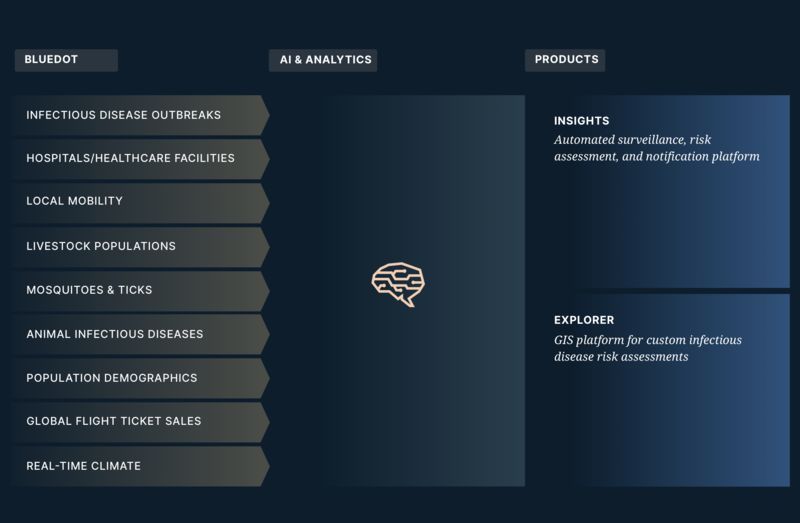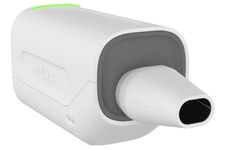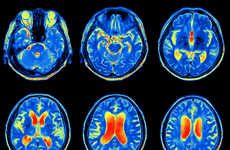
Bluedot Uses Proprietary Algorithms to Spot Disease Outbreaks
Samir Reynolds — March 29, 2020 — World
References: bluedot.global & wired
Bluedot, a Toronto-based health startup uses AI to track diseases around the world. They combine public health and medical expertise with advanced data analytics to analyze, surveil, and contextualize the risks pose by a variety of infectious diseases. They work with governments in 12 countries and hospital networks across North America, providing information on many features of infectious diseases, including the risk of importation and the potential for a localized outbreak.
The methods of the company have accurately predicted the arise of several outbreaks, including the migration of Ebola out of West Africa in 2014. More recently, Bluedot identified the rise of the virus that would come to be known as COVID-19 nine days before the World Health Organization made its announcement about a flu-like outbreak in China.
Dr. Kamran Khan was inspired to create the company's methods after seeing the devastation of the SARS outbreak in 2003. Bluedot announced that it closed a $7 million USD round of series A funding in August of 2019, bringing its total funding to $9.5 million USD.
The methods of the company have accurately predicted the arise of several outbreaks, including the migration of Ebola out of West Africa in 2014. More recently, Bluedot identified the rise of the virus that would come to be known as COVID-19 nine days before the World Health Organization made its announcement about a flu-like outbreak in China.
Dr. Kamran Khan was inspired to create the company's methods after seeing the devastation of the SARS outbreak in 2003. Bluedot announced that it closed a $7 million USD round of series A funding in August of 2019, bringing its total funding to $9.5 million USD.
Trend Themes
1. AI-based Disease Surveillance - There is an opportunity to further develop AI algorithms to better predict disease outbreaks and prevent pandemics.
2. Global Health Analysis - There is an opportunity to use big data and AI to analyze global health trends and provide insights to governments and healthcare providers around the world.
3. Predictive Disease Mapping - There is an opportunity to further develop the use of predictive analytics to map the spread of infectious diseases and identify potential risk areas.
Industry Implications
1. Healthcare - There is an opportunity for healthcare providers to use AI-based disease surveillance methods to improve patient outcomes and prevent the spread of infectious diseases.
2. Government - There is an opportunity for governments to partner with health startups like Bluedot to better predict disease outbreaks and improve public health outcomes.
3. Public Health - There is an opportunity to use predictive analytics and AI to improve public health outcomes and prevent pandemics around the world.
4
Score
Popularity
Activity
Freshness























